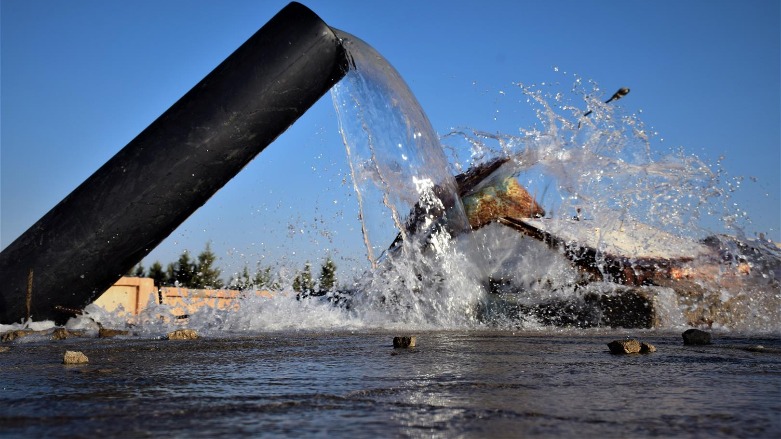Turkish-backed groups again cut water to 460,000 civilians in northern Syria: report

ERBIL (Kurdistan 24) – Turkish-backed armed groups on Saturday reportedly cut the flow from the Alouk reservoir that supplies water to areas in northeastern Syria’s Hasakah province which the Kurdish-led local administration controls, depriving some 460,000 civilians in the region of the essential resource.
The Alouk water station is near the border town of Ras al-Ain (Serekaniye), which Turkey and its militant proxies took over in October 2019 during Ankara’s so-called Peace Spring Operation.
Since then, Turkish-backed groups have regularly cut the water flow from the facility, affecting an estimated 500,000 people in Hasakah city and nearby communities.
The UK-based Syrian Observatory for Human Rights (SOHR) reported that Turkish forces had “suspended pumping of water supply” to Hasakah and its western countryside once again, “after a power outage” at the Alouk water purification station in Serekaniye countryside.
Both the SOHR and the pro-Syrian government SANA news agency reported that Turkish-backed forces had prevented workers from accessing the station since Saturday.
The co-chair of the Directorate of Drinking Water in the city of Hasakah, northeast Syria, Nidal Mahmoud, told Kurdistan 24 that the local administration is working on new water projects as an alternative to Alouk, but the water demand remains very high.
Local Kurdish media reported that the Autonomous Administration of North and East Syria (AANES) plans to provide 15,000 cubic meters of water per day to Hasakah city as part of a new water project. However, the project only covers 20 to 25 percent of the water demand.
Charles Flynn, a Syria-based researcher at the Rojava Information Center (RIC), said the AANES has been powering some of their new wells from the Tabqa electrical power facility, which created some power shortages to the Serekaniye area, which then lead to the Syrian National Army turning off the water station.
“There had been some negotiations with the Russians and the Syrian Red Crescent to allow water workers back into the Alouk water station,” Flynn told Kurdistan 24. “But as recently as a day or two ago, the SNA has refused to allow them back into the station.”
“It seems the SNA wants the electricity first before allowing the water to flow again.”
Editing by Karzan Sulaivany
